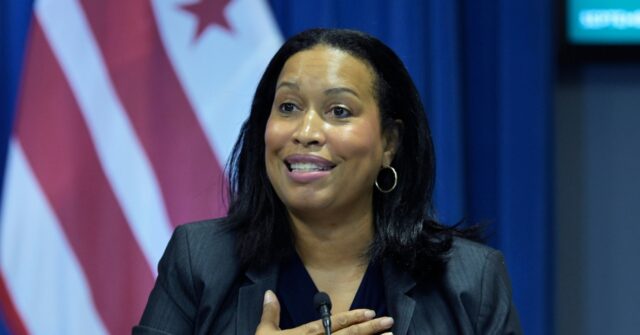In the wake of rising crime rates in Washington, DC, Mayor Muriel Bowser has reached out to President-elect Donald Trump, hoping to address the safety concerns that have plagued the District since his departure from the White House. Recent findings by WalletHub place Washington at a troubling 172 out of 182 cities regarding safety, with notable increases in various crimes, including carjackings. The current metrics highlight a stark contrast to the crime levels during Trump’s initial administration. As the city grapples with these challenges, officials look to make changes that will enhance overall safety and restore public confidence.
Significantly contributing to the current state of crime is the 2023 decision by District leaders to cut the police budget by 1.7 percent. This reduction in funding aligns with the choice by U.S. Attorney for the District of Columbia, Matthew Graves, to not prosecute over half of the arrests made by local law enforcement. Such policies appear to have empowered criminal elements, resulting in violence and alarming incidents targeting federal officials and even Secret Service personnel. In this context, Trump’s earlier statements about D.C., describing it as a “dirty, crime-ridden death trap,” resonate with many residents who are increasingly anxious about personal safety.
Trump’s agenda, as noted in his social media declarations, positions his administration’s priority as “cleaning up” Washington, emphasizing a desire to restore safety and order. He assures supporters that addressing the city’s security issues will be a major focus of his election platform. His rhetoric implies a willingness to intervene directly in the administration and governance of D.C., should the opportunity arise. With these intentions, the perception is forming that federal oversight may be necessary to correct what he describes as Washington’s dysfunctional leadership.
In a proactive stance, Mayor Bowser expressed a need for cooperation between her administration and Trump’s incoming leadership. She articulated a desire for assistance in revitalizing downtown D.C. and restoring the “majesty” associated with the nation’s capital. The meeting she has proposed seeks to solidify a partnership that emphasizes collaboration and a unified effort toward improved safety and infrastructure within the city. Bowser’s outreach reflects the urgency with which she and other local leaders wish to address the escalating crime and its repercussions on the community.
The political ramifications of Trump’s potential policies towards D.C. could reshape the governance dynamics. Analysts suggest that it may be time to reconsider the Home Rule Act, which currently allows D.C. some autonomy. Given Trump’s hold over both the presidency and Republican majorities in Congress, there’s speculation that his administration could enforce stricter oversight, thus fundamentally altering the self-governance model that has been in place. This could mark a pivotal moment for D.C., potentially leading to an increase in federal authority while ameliorating local challenges.
As discussions between local leaders and the incoming administration develop, the focus will remain on finding practical solutions to rectify the crime epidemic gripping Washington. The implications of this collaboration extend beyond immediate safety concerns, potentially affecting broader governance and political structures in the District. Whether this connection yields significant changes will become apparent as Trump’s administration seeks to find balance and establish a framework that prioritizes the safety and well-being of residents while navigating the complexities of D.C.’s political landscape.

